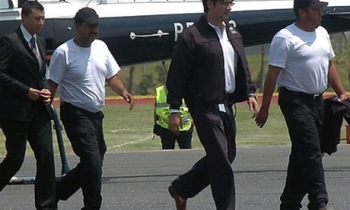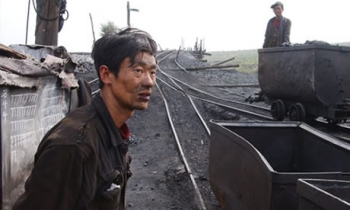On the eve of the first anniversary of Radio Okapi journalist Didace Namujimbo’s murder in Bukavu, the capital of the eastern province of Sud-Kivu, Reporters Sans Frontières (RSF) and Journalist in Danger (JED) have condemned the lack of action on the part of the military officers in charge of the investigation.
Namujimbo was killed by a single shot to the head as he was returning home at around 9:30 p.m. on November 21, 2008 in the Ndendere neighbourhood of the Bukavu municipality of Ibanda. One year later, a dozen suspects have been arrested but other suspects have escaped and no trial has yet been held.
“After the fiasco of the trial of the alleged murderers of fellow Radio Okapi journalist Serge Maheshe, it seems incredible that history could be repeating itself,” said RSF Secretary-General Jean-François Julliard and JED president Donat M’Baya Tshimanga.
“The slowness of the proceedings and a blatant desire to torpedo enquiries are preventing justice from being rendered to Namujimbo and his family and are exposing all journalists to endless further violence,” they added, urging the authorities to set a date for the start of the trial. “Impunity is protecting the crime industry in Bukavu.”
“Will my brother’s murderers ever be brought to trial?” asked Déo Namujimbo, the RSF correspondent in the eastern part of the Democratic Republic of Congo. “To be honest, I very much doubt it. Twelve people have been arrested. Why are they waiting to try them? This is like the case of Serge Maheshe, gunned down on June 13, 2007, and that of Pascal Kabungulu Kibembi, slain in front of his children on the night of August 1, 2005.”
Seventeen people are regarded as Namujimbo murder suspects by military investigators attached to the Bukavu military garrison’s court but only 12 of them are currently held in the city’s prison. The others either escaped or are on the run. One of them died. The detainees are charged with murder, criminal association and receiving stolen goods. The military court insists that Namujimbo was murdered in the course of a robbery, either to facilitate it or to ensure that it went unpunished.
The date of the trial before the Bukavu military court has repeatedly been postponed. The court at first attributed the delay to the fact that its entire staff had been assigned to supervising the distribution of pay to soldiers. Then the military judges said they had been told their priority was to try offences committed in the course of a military operation called Kimya II. The president of the military garrison court finally said “the Capt. Remy case” had to be solved first. Referred to as “T3 of the 10th military region,” Remy was murdered at the start of this year.
Responding in a letter (No. 175/AMS/SK/2009) last April to the concerns expressed by Namujimbo’s widow, Asha Mundeba, Lt Col Laurent Mutata Luaba, a senior Sud-Kivu military judge, declined to offer any detailed explanation on the grounds of the “legal confidentiality of this phase” of the proceedings.
Another journalist has been murdered in Bukavu since Namujimbo. It was Bruno Koko Chirambiza, the presenter of the main news programme on Radio Star, a local, privately-owned station, who was stabbed twice in the chest on August 23, 2009. His murder has not been investigated. In September, three women journalists also received death threats.
In response to a request from JED (RSF's partner in DR Congo), prosecutor-general Flory Kabange Numbi announced a judicial enquiry. “But nothing has been communicated about this enquiry and yet again the judicial system is using the requirement of confidentiality to hide the fact that no progress had been made,” JED said.
Communication and media minister Lambert Mendé Omalanga has meanwhile said he wants to improve the safety of journalists but no measure has yet been taken.
RSF did an on-site investigation just a month after Namujimbo’s murder, meeting with civilian and military officials in Sud-Kivu. In a report last March entitled “Bukavu, murder city,” RSF condemned the fact that the military had taken charge of the investigation and urged the Congolese government to set up a special judicial commission to investigate the murders of journalists and human rights activists in Bukavu. This request has been ignored.









